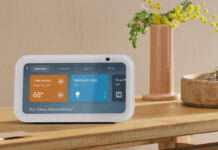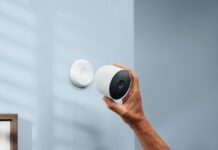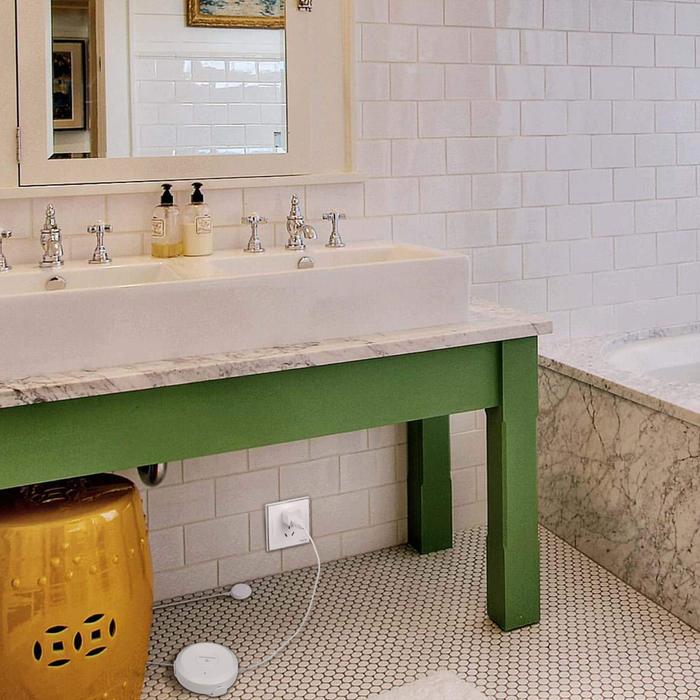
A smart water detector is an inexpensive yet effective way to monitor trouble spots for water around your home. If you ask any home insurance providers in Canada these days, they will tell you that water damage is the number one claim, by both frequency and claim amount. Water damage claims account for around 50% of all claims in Canada, and that was based on numbers I’d read from a study done back in 2008. It wouldn’t surprise me if the number is closer to 55-60% nowadays. You can’t be everywhere at all times keeping an eye on those water lines in your home, but a smart water detector can.
What are smart water detectors?
A smart water detector is a device, ranging from the size of a cookie to that of a smoke detector, that can sense a water leak, entry, or escape, depending on where you’ve placed it. What these sensors do is sound an alarm when they get submerged, or a certain amount of water hits them. They can also alert your phone that something unusual is happening. Needless to say, when you choose where you’re placing your sensor, you want it close enough to a trouble spot, but far enough away that stray splashes won’t cause a series of false alarms. Typically, there does need to be a certain amount of immersion before the sensor triggers anyway.

These sensors can run in single or in a network in your home to give you peace of mind and help you deal with any leaks or problems of that sort before they become a bigger problem. Here are 5 reasons why you need a smart water detector (or detectors) in your home.
Minimize water damage with a smart water detector
We often think of the hot water tank as the big source of danger, and it’s fair. The thought of 40 gallons of hot water flowing through your house is not fun. However, there are other sources to consider as well. There’s your washing machine, toilets, and sinks too. While replacing the braided hoses connecting those items to your water supply is a highly recommended preventative measure, there are overflows and backups to worry about too. A smart water detector around these items can help minimize damage by sounding its alarm the moment it gets wet.
Alerts to unusual problem spots
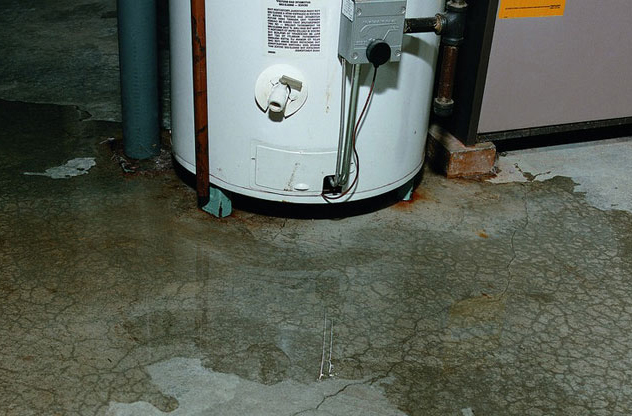 Although your hot water tank is an obvious source of water—and one of the fastest due to its volume, it isn’t the only thing to be mindful of. I did mention replacing supply hoses to appliances on a regular maintenance schedule above, but there are other things to keep in mind too. I personally had a friend who bought sensors for his parents, and their toilet tank cracked one night. The alert woke them up, and they were able to shut the water off and clean things up right away. Without that alert, they would’ve surely awoken to thousands (if not tens of thousands) of dollars worth of water damage, a lengthy insurance claim, and restoration work.
Although your hot water tank is an obvious source of water—and one of the fastest due to its volume, it isn’t the only thing to be mindful of. I did mention replacing supply hoses to appliances on a regular maintenance schedule above, but there are other things to keep in mind too. I personally had a friend who bought sensors for his parents, and their toilet tank cracked one night. The alert woke them up, and they were able to shut the water off and clean things up right away. Without that alert, they would’ve surely awoken to thousands (if not tens of thousands) of dollars worth of water damage, a lengthy insurance claim, and restoration work.
Keeping a smart water detector near a toilet, for example, could provide you an alert for 3 things: a toilet tank crack, a supply hose leak, or a backup. If your toilet is next to your tub, it could look out for a leaky faucet too.
Bring down your home insurance prices
Some home insurance providers across Canada now offer discounts for smart home fixtures. Some require a minimum number of items, and some require certain types of items. As I mentioned at the beginning of this blog, water damage is a bigger problem spot for insurance claims than things like fire and theft, so your insurer might be enthused to find out that you’ve installed smart water detectors throughout your home.
Provide backup in case you forget to empty your dehumidifier
This isn’t a problem that I admit I have here in BC, but I’ve heard that some of you back east have dehumidifiers and have to empty them on a frequent basis. If the basin below begins to crack, or you have a pump system hooked up that begins to fail, a smart water detector can automatically alert you to problems at the dehumidifier and spring you into action to deal with them before the water damages your carpets or flooring. Even if it’s a fairly small dehumidifier, you don’t need a lot of water leaking out to do a lot of damage—especially with flooring.
Monitor hard-to-see and hard-to-reach areas of your home
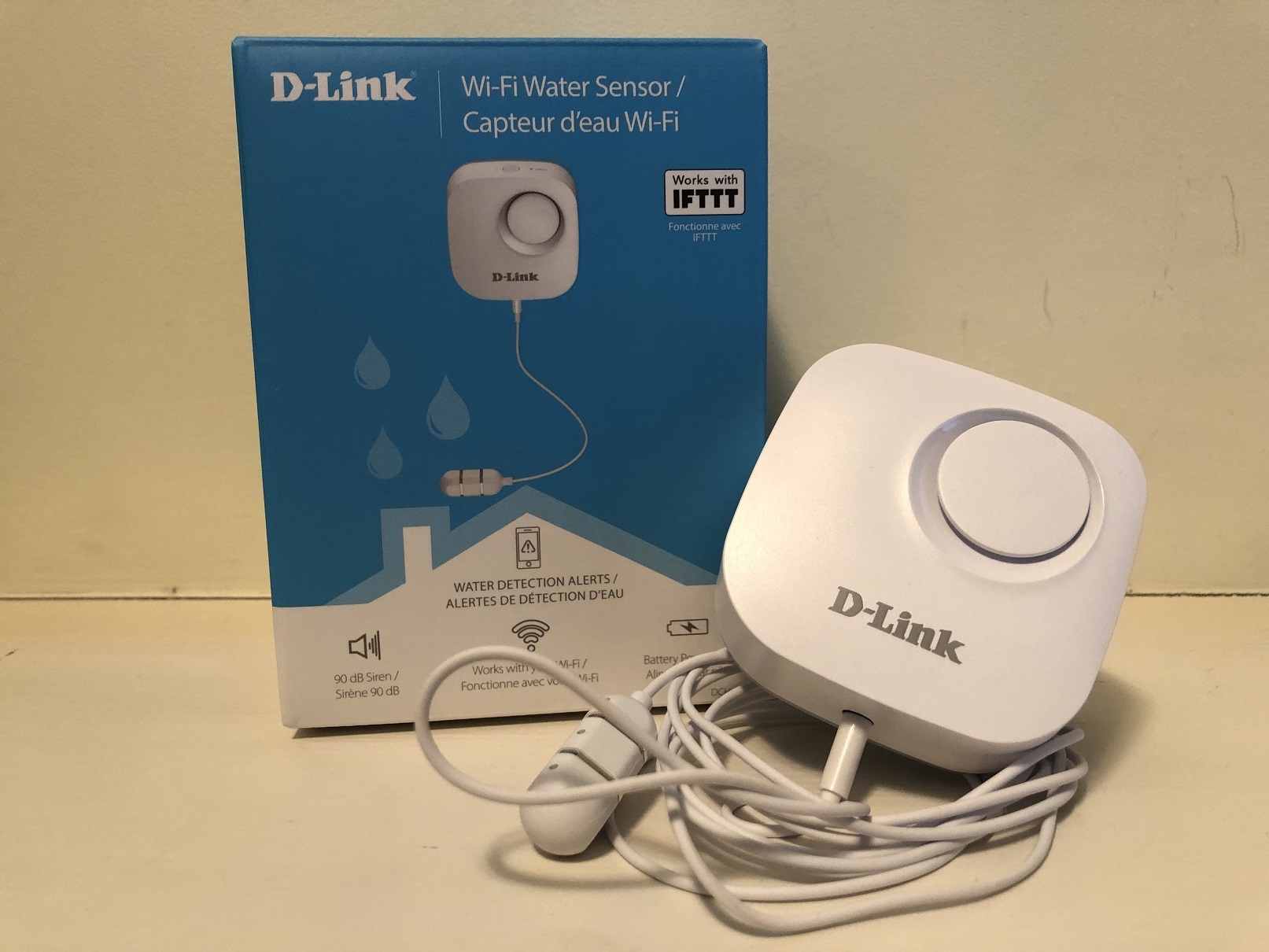 You can’t have eyes on every single corner of your home where water could be a problem. While I’ve spent a lot of time talking about some of the things that could happen inside, I haven’t really talked about the perimeter of your home. It would also benefit your home to have a sensor placed in basements, crawlspaces, garages, or attics. If you go with the D-Link Water Detector, for example, they allow you to link up to 24 of their devices to one account, meaning you could have that many sensors around your home. For many of you that live in stratas where homes are built similarly, you may end up hearing stories from your neighbours about problem spots they’ve had, which might get you curious about how to monitor. Smart home technology is always a good way to help!
You can’t have eyes on every single corner of your home where water could be a problem. While I’ve spent a lot of time talking about some of the things that could happen inside, I haven’t really talked about the perimeter of your home. It would also benefit your home to have a sensor placed in basements, crawlspaces, garages, or attics. If you go with the D-Link Water Detector, for example, they allow you to link up to 24 of their devices to one account, meaning you could have that many sensors around your home. For many of you that live in stratas where homes are built similarly, you may end up hearing stories from your neighbours about problem spots they’ve had, which might get you curious about how to monitor. Smart home technology is always a good way to help!
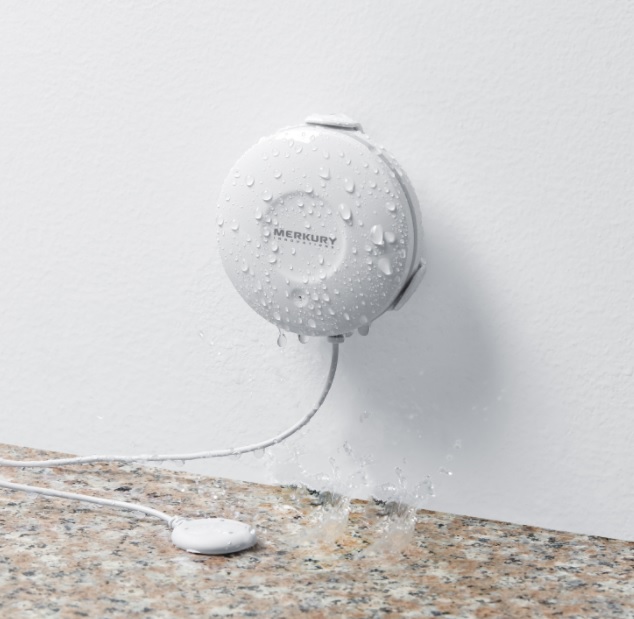
Choosing the right smart water detector
Now that I’ve offered some reasons to consider smart water detectors in your home, it’s your turn to start thinking about those areas that might benefit from them and choose the right sensor for your space. I’ve tried a couple different detectors over the years, and I came away really liking 2 of them. I’ve found out that one has since likely been discontinued (or is impossible to find), so instead I’ll recommend the last one I tried and reviewed, which was the D-Link reviewed here. D-Link is loud and is really small, which means it can easily pop into small nooks and corners without taking up much space.
The last thing to consider is how many sensors you’re getting and what their battery life is. Just like any wireless smart home device, you’re going to end up facing battery issues, whether it’s just recharging, or replacing. The battery life of smart water detectors varies from 6 months to a couple years, so take that into consideration, along with whether the sensors you’ve chosen will send you alerts when the batteries are running low (which they all should at this point).
Getting smart water detectors into your home won’t be a difficult task and can be done in the course of one morning or afternoon. If you have these sensors in your home, please share with us what you chose and whether you’d recommend it to your fellow readers!


